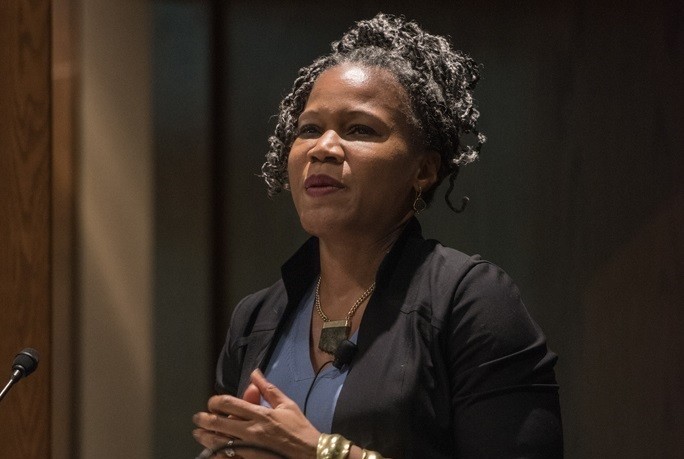Wealth creation in low-socioeconomic communities
Last fall, the Jane Jacobs Lecture Series featured leading urban revitalization strategy consultant, real estate developer, and Peabody Award-winning broadcaster Majora Carter. Carter is the founder of Sustainable South Bronx and Green For All, and has created and implemented numerous green-infrastructure projects, policies, and job training and placement systems. She also has a private consulting firm that helps spread the message and success of social enterprise and economic development in low-socioeconomic communities.
At BC, Carter expertly spoke the language of business school students, comparing communities to corporations. Corporations, she claimed, work hard to keep the talent they bring in and train to ensure they don’t leave in favor of a competitor. In her view, communities, especially low-socioeconomic communities, need to do the same thing. Rather than using the tired tactics that are supposed to help impoverished areas, like affordable housing and community centers, she advocates creating a failure-retention model. Carter and her peers want to get creative in order to convince talented individuals who grow up in these communities that success doesn’t have to mean getting out. She aims to do this by making room for wealth creation potential, and housing and business development that addresses community members’ aspirations, which she likens to stock options in a corporation.
Carter has implemented this idea in the form of the first coffee shop in her Bronx neighborhood in 25 years, which serves as an investment opportunity, a gathering place, and a symbol of the value of the neighborhood, which Carter says community members must understand to protect against gentrification. Her group also created StartUpBox, which helps people from low-socioeconomic communities participate in the tech economy by offering entry-level jobs that give them access to the industry as a whole and opportunities for the future. Through StartUpBox, Carter hosted a gaming event that brought the local police force together with the community, part of many efforts that made Carter’s local precinct the only one in the Bronx that did not have a rise in negative community-police interactions that year. Her success has not come without its trials—it takes time and understanding for some to see the value of her work. Yet, slowly, she is showing members of her own community, and others, that they “don’t have to move out of the community in order to find a better place to live, and that low-socioeconomic communities already hold the key to their own economic recovery.”
Caitlan Griffith ’20, Winston Center Undergraduate Assistant




